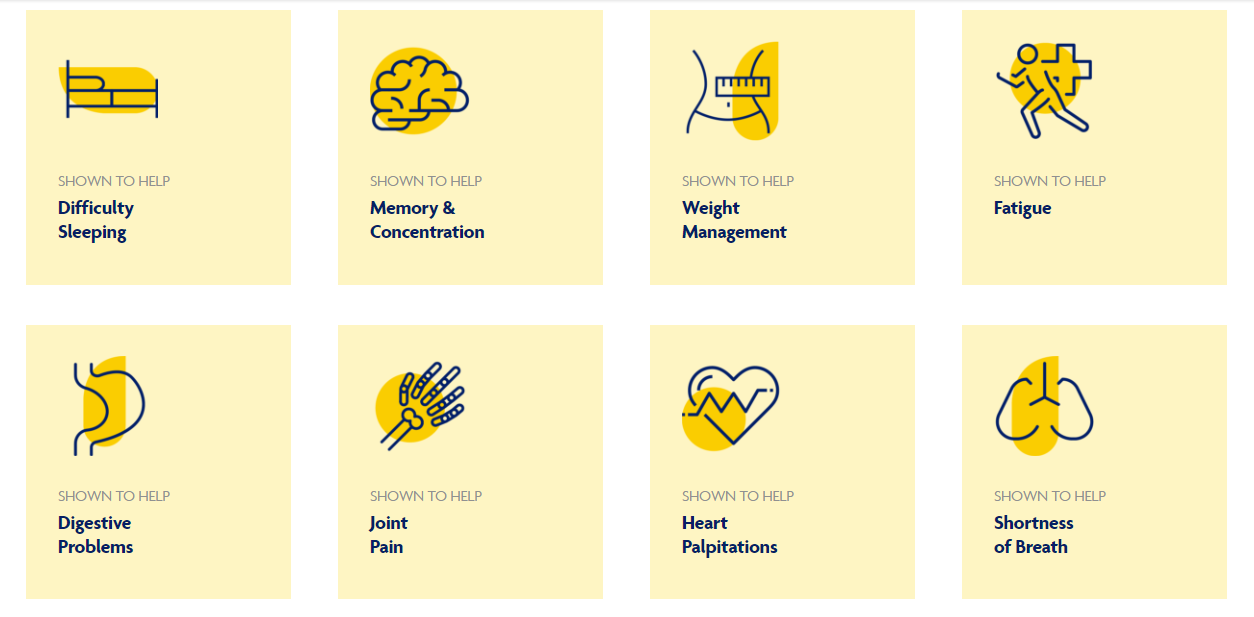We are very excited to introduce Dr Lucy Prince, our valued partner. Her clinic - MyMedics uses GlycanAge to help patients increase their healthspan and better their quality of life, and the results can speak for themselves.
But let’s not get ahead of ourselves. It’s important to understand why Dr Lucy founded My Medics and what their mission is.
"I'm a really proud NHS doctor, and I've worked in the NHS for over a decade. I always knew that I wanted to be a doctor and I absolutely love my job. I think I'm just curious about people. I love talking to people and I love learning from them. I honestly think I learn the most from my patients (and from my children!).
I've kind of been practising preventative medicine for years with my patients and also with my own family. It's just sort of what I was doing before I even realised it was called ‘preventative medicine’. I started to notice that many of the conditions I was treating with my patients in the NHS could have been prevented with the right intervention, at the right time.
I think that a lot of postgraduate clinical training is reactive. It's focused on treating established diseases after they’ve developed in an attempt to try and slow or reverse them. And in some ways, to me, that just feels a bit too-little-too-late. I've always thought that we'd serve patients much better if we could adopt a bit more of a proactive approach. By that, I mean trying to stop the disease from developing in the first place and slow the progression of disease that's already there.
I knew that's what I wanted to change. That’s why I decided to found MyMedics, which was created in 2021. I knew exactly what components I wanted MyMedics to have, and I've worked so hard to achieve those things. I knew that it had to deliver evidence-based medicine only and I knew that I wanted it to have the same regulations and high-quality standards of care that the NHS has.

I wanted to be able to give patients specific and measurable interventions, but also have the option of having specialist care from consultants when that was needed. And I wanted to create a space for patients and doctors that just generally felt like a bit of a breath of fresh air. We chose the name MyMedics because it was important to us that the brand was led by doctors and that it was personalised for patients.
It's still very much in its early days, but it's been so exciting to watch MyMedics start to flourish and see some of the great results for our wonderful patients. It's been an absolute pleasure, it really has. I spent several years doing extra training in lifestyle medicine, and I completed the British Society of Lifestyle Medicine Diploma. I learnt so much about how to prevent disease and how to help keep patients healthy. Rather than focusing on disease, I like to focus on health.
I've been just incredibly fortunate to work with some really pioneering and motivating professionals. A personal highlight for me was speaking at the International Conference of Lifestyle Medicine in London last year, which Tim Spector also presented at. That was a real pinch-me moment!"
Watching Dr Lucy’s practice grow has been such a pleasure. Her drive to improve patients' life spans, as well as their quality of life, is what deepens our connection. No symptom of a lower quality of life should be ignored, no matter how trivial you may think it is.

"I think as clinicians, quality of life is something that we always strive to give our patients, and it's a really complex notion. I also have an honours degree in medical ethics, and one of the things that I studied was what quality of life actually means. It's not a one size fits all.
Over time, there's been lots of different attempts at quantifying quality of life, both on an individual level and on a population level for moral interests, and also for justifying resource distribution. Central to MyMedics is to find out from our patients how they define their own quality of life.
Sometimes that's addressing a certain symptom, for example, lethargy. And sometimes it's about addressing function, for example, their ability to exercise in a more enjoyable way. I remember an example that we had recently of a patient working with MyMedics who on paper was really fit, really active, really healthy. She was a busy working Mum, but she was absolutely exhausted. We were able to improve her energy by optimizing her sleep patterns.
So for her, this was related to the type of exercise that she was doing and, interestingly, the timing of the exercise. Evidence shows that the timing of exercise is related to peripheral tissue oscillators in humans. Exposure to acute bouts of high-intensity exercise during the evening can cause a significant phase shift in melatonin onset relative to the baseline melatonin onset.
By really focusing on sleep improvement, that patient's quality of life was improved. Essentially, I think that quality of life very much depends on the patient and sometimes that's a symptom and sometimes it's a function."

It’s amazing just how much Dr Lucy can improve her patients’ lives by listening and not giving up on them. This is one example of a patient who came to My Medics with sleep issues, a poor diet, and sub-optimal exercise habits. Their initial GlycanAge was 55, which was 20 years older than their chronological age. After the test, the patient was guided through lifestyle interventions including a restorative exercise programme, sleep pattern optimization and more. All of these interventions worked amazingly well, which was demonstrated by the next GlycanAge test. These changes resulted in a 13-year decrease in their biological age. And that is just the beginning.
Seeing how Ozempic is such a popular topic nowadays, we had to ask Dr Lucy whether situations like these, where everyone knows the name of this drug, help in weight management services or if they create unrealistic expectations.
"I think maintaining weight is just one component of lifestyle that can influence how quickly and to what extent we go on to develop lifestyle-related diseases. I don't think it's helpful to focus too much on weight. Of course, it gets a huge amount of attention, but the reality is that Ozempic is not suitable for every patient.
At MyMedics, we only prescribe GLP-1 agnoists after a patient's been assessed by a doctor to be sure that they're actually eligible to benefit from taking it and to monitor their progress. If it's not suitable or there's a better option for that patient, then we don't prescribe it. And obviously, it goes without saying that Ozempic does not override the necessity to embrace specific and tailored lifestyle changes to address the underlying cause of becoming overweight in the first place.
I think it's great that people know about it, and it's a really exciting option on the horizon. But as with any option, I think we just need to have a little bit of caution with it and make sure that we're only using it when it's appropriate to do so.
I think having Ozempic in a clinical setting with doctors who know your full medical background is really important."
If you’re interested in contacting MyMedics to help you out with weight management, here’s exactly what you can expect.
"We have an established process that all patients go through. There's a triaging process, first of all, to check that they're eligible and that they don't have any obvious contraindications to Ozempic that would make it unsafe for them.
They then have a face-to-face consultation with a doctor to ask any questions and again, just go through that process again, making sure that it's suitable for them. They receive their first month's prescription, but would only then receive their second dose if they'd had a review with a doctor.
I think it’s important that there's a regular review process by a clinician. People aren't just started on it and then set off to sea with months and months of Ozempic at their disposal."
One of their other specialities is menopausal care. If we talk about this subject in numbers, we get the gloomy statistic that around 66% of menopausal women end up with the wrong treatment plans. A lot of the time, women are needlessly prescribed anti depressives and their menopausal symptoms are ignored.
"Menopause is just massive, isn't it? It's such a massive topic. I think menopausal care is a constantly evolving field. So patients and doctors are learning a lot more about good quality menopause care and I think it can seem daunting to some clinicians in the sense that there are often new updates and new approaches to take. But as with anything, I think education from evidence-based resources is crucial.
There are some issues with stock supplies and there are also time constraints in NHS care, which just make things even more tricky. In the future, I would love to see more widely accessible menopause care for patients. I think women need to feel heard and feel supported and have a holistic approach because menopause is about a lot more than just which HRT preparation to prescribe.
At MyMedics, we definitely do see a marked increase in biological ageing around menopause. There was a study published in 2020 that showed the effects of estradiol on GlycanAge, and it showed that deprivation of gonadal hormones in perimenopausal women for six months resulted in a 9 year median GlycanAge increase.
But the group that received transdermal estradiol treatment did not have that rise in GlycanAge. So what we also saw was that the most encouraging changes were seen when HRT was combined with moderate exercise and weight loss and a holistic lifestyle change. So I think it's important to look at the patient as a whole and not just at an HRT regime."
Unfortunately, a lot of women still fear hormonal therapy. This can all be linked to a highly publicised 2002 study that concluded that there were more downsides than upsides to HRT. Since then there have been numerous studies showing that when taking the right dose of HRT at the right time, women reduce their risk of heart disease. However, the stigma stayed.
If you’re someone who’s afraid to go on hormone replacement therapy, here’s what Dr Lucy has to say.
"Don't be afraid. I would say talk to your doctor about which is the most appropriate preparation for you. There are so many options and so many choices now. We also know a lot more about the safety profile of HRT than we did even just a few years ago. It's not something that women should feel afraid of accessing. I would always encourage women to have a really open conversation with their doctor about it to work out the best option for them.
I was treating a lady at MyMedics who was struggling to access high-quality, timely menopause care within the NHS. Her biological age was one year older than her chronological age, and she just felt exhausted. She felt really run down. She wasn't sleeping well, her weight was increasing and we implemented a combination of interventions for her.
She was started on a bioidentical HRT regime. She also did have some support with weight loss and took a high dose of vitamin D, NAD+ and a good quality probiotic. We then tested her biological age again. I was so impatient, I couldn't wait six months to re-test her! So I did it after 12 weeks. It had already come down by a year and she was already feeling so much better.
She had a lot more energy, clearer thinking, less joint pain. She'd lost four kilograms in weight. It was just a really great motivator for her to continue with the interventions that we'd put in place, and we're continuing to work with that patient at the moment."
We love hearing stories like these. It’s such a privilege to do this type of rewarding work, and it’s no accident that GlycanAge and MyMedics started working together.
"MyMedics is an evidence-based clinical provider. Before I found GlycanAge, I hadn't found a reliable, objective and measurable evidence-based tool to demonstrate the improvements to patients' health that we were making with their lifestyle changes. I use GlycanAge as a snapshot in time.
It’s useful as a benchmark to patients for how they're doing right now and I really try to communicate that it is a starting point. It's not the destination. It's also a good way of showing patients that the interventions we've introduced are working. In that sense, GlycanAge is a powerful motivator for patients.
We had a patient recently who was motivated to engage with MyMedics because he had a family history of sudden cardiac death in a first-degree relative of a similar age as him. On paper, again, he was incredibly healthy, really fit and active in his 60s, with normal blood pressure. But because there was a familiar association with glycan median score and cardiovascular health, we focused on that index of his GlycanAge.
Chronologically he was 65, and his initial biological age came out at 28. He said that he was delighted but not surprised to have the GlycanAge of 28 because he focused on his health all of his life. So he really was very healthy. But what I say to patients at MyMedics is if you've got a disappointing initial GlycanAge score, we will help you to improve it. And if you've got an excellent initial GlycanAge score, we will still help you to improve it. So that's what we did.
Because of the family history and his relative with sudden cardiac death, we did extensive cardiovascular investigations. He had a lipid profile, he had a cardiac angiogram, and a cardiac MRI. Those investigations showed that he did actually have some early coronary artery disease that was already established.
He was started on a high-dose statin. All red meat was excluded from his diet and a plant-based diet was introduced. We know from multiple meta-analyses published in the literature, there are consistent results that a plant-based diet is associated with up to a 25% reduction in cardiovascular disease incidence and mortality. We retested again at 12 weeks (because, again, I was too impatient to wait six months!) and his biological score had already come down to 23.
And that was only in 12 weeks. He said he was absolutely delighted and that he felt pride in himself.
You know, I really believe that optimal health is not a numerical value. It can't be captured fully in a biological age score. Ultimately, optimal health has a value that is unquantifiable and it really is an honour to help patients realise that and to help them improve it."
Although we could talk to Dr Lucy for a very long time, we had to bring this interview to a close, and as always the last question was - Are there any health myths you would like to bust?
"Yes! That you just need to eat less and move more. I absolutely hate it. It's too vague, it's too simplistic, and it just sets unrealistic and actually quite harmful expectations for people. I think healthy choices have got similarities between us all, but making high-quality and effective changes to lifestyle is so personal to each one of us. It does need a bespoke approach that takes into account your pre-existing medical background, your family history, and also your mental health.
The opposite can be true - actually eating MORE and moving LESS can also be really healthy for some people. We just need to be careful not to overgeneralize because we are all wonderfully different."
Wise words Dr Lucy. We really are all different and should be seen by the medical industry as individuals.
If you’re interested in Dr Lucy’s services, we highly recommend reaching out for a free 15-minute consultation by clicking here. Whether you’re interested in a specific service we mentioned, or want to figure out why you don’t feel your age, Dr Lucy will hear you out.


